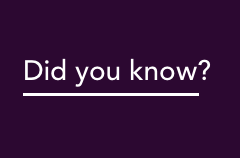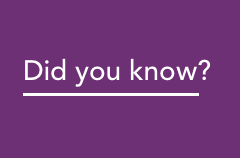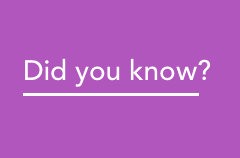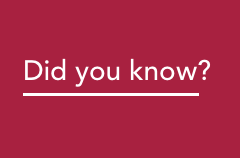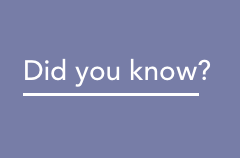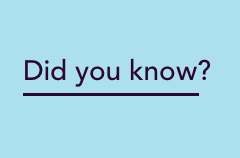ISP Consumer Panel in their own words: December 2024
The 2026 ISP Consumer Panel members (Mark Henley – Chair, Jarra Hicks, Beverley Hughson and Craig Memery) share an update on their recent contributions to the two-year development of the 2026 ISP.

2026 ISP Consumer Panel members Craig Memery, Beverley Hughson, Jarra Hicks and Mark Henley.
In the three months since the last 2026 ISP newsletter, the four Consumer Panel members have continued to meet fortnightly with key AEMO staff, with a strong focus on exploring aspects of the Draft 2025 Inputs, Assumptions and Scenarios Report (IASR).
The Panel is continually exploring approaches that will enhance input to any aspect of the ISP by consumer interests and have given focus to CER (Consumer Energy Resources) and how it can be encouraged, along with exploring ‘mid-level’ generation, as this is where community energy organisations are operating under difficulty due to prevailing arrangements.
We have provided written comments and provided consumer-focused advice for AEMO’s consideration on the following:
- Electricity Demand Forecasting Methodology Consultation Paper
- 2026 ISP Stakeholder Engagement Plan
- Distributed Energy Resources (DER)/CER stakeholder database (Excel) with a focus on community-based ‘mid-level’ providers
- Discount Rates / WACC in response to Oxford Economics’ progress report
- ISP Methodology issues paper.
The Panel also made a submission to the Senate Select Committee on Energy Planning and Regulation in Australia.
Electricity Demand Forecasting Methodology Consultation Paper
An important aspect of this consultation paper was the early consideration of how the 12 actions supported by Energy Ministers in response to the 2023/2024 ISP Review would be considered.
Key actions identified by the Ministers and reinforced by the Panel include:
- integrating gas into the ISP
- enhancing demand forecasting
- better data on industrial and consumer electrification for the demand side
- jurisdictional policy transparency.
The near and longer-term future role of gas in electricity generation is of concern to consumers who have a wide range of views about the extent to which gas needs to be integrated into the ISP.
On the question of hydrogen forecasts, the Panel wrote:
“It is appropriate that AEMO monitor developments in the use of hydrogen to be considered for future electricity demand forecasting, however, currently we regard hydrogen impacts on electricity demand to be likely to be modest, with most plans for proposed hydrogen electrolyser developments in ‘hydrogen hubs1 ’, including associated new renewable generation capacity, so not likely to be adding significant additional load to the NEM/SWIS networks.
Regarding energy forecasting, the Panel supported AEMO’s proposals for improving and updating demand forecasting approaches and noted that the roll out of smart meters and improving energy efficiency of appliances may limit demand growth. The potential for reduced electricity use from more energy-efficient housing was identified and hoped for.
⎯⎯⎯ 1 The Panel understands that hydrogen-focused projects announced by state governments are Pilbara and Kwinana in WA, Hunter in NSW, Bell Bay in Tasmania, Gladstone in Queensland, and Upper Spencer Gulf in SA.
2026 Stakeholder Engagement Plan submission and DER/CER stakeholder list with a focus on community-based ‘mid-level’ providers
The Panel supported the engagement goal, given as:
“Provide interested stakeholders with appropriate time and opportunity to access and provide meaningful input into our planning. We want interested stakeholders to get involved and shape our planning for the efficient development of the energy system, for the benefit of all Australians as we work to achieve a net zero future.”
This is a bold goal that is supported by the Panel, while recognising that the ‘pace’ of the ISP process may hamper ‘appropriate time’ for some stakeholders to respond some of the time.
We recognise that AEMO will make every effort to hear stakeholders who want to respond to a particular topic and are hampered in their capacity to respond formally.
Continuous improvement in consumer and stakeholder engagement practice is crucial to the development of effective ISPs.
Discount Rates / WACC, in response to Oxford Economics progress report
The Panel supported Oxford Economics’ approach of considering three perspectives: Survey and interview, Macroeconomics, and Benchmarking with the research framework, as presented, being comprehensive.
ISP Methodology issues paper
In our summary for this paper, we wrote:
“The Panel is generally supportive of the directions that AEMO is proposing in the 2026 ISP Methodology issues paper, in particular:
- modelling for greater levels of uncertainty
- enhancing the consideration of CER and DER in modelling
- a clearer emphasis on the role that can likely be played by distributed energy, along with DER
- responding to the Energy and Climate Change Ministerial Council (ECMC) responses to the ISP Review.”
In considering the paper, the Panel has had a focus on gas, an area of ECMC advice, and identified some areas where we think further clarification would be helpful. The matter of engagement with a diversity of consumer and stakeholder interests continues to be important for all aspects of ISP development. This issues paper reinforced to us that engagement on DER / CER and distributed energy opportunities is a priority for further engagement.
Contact the 2026 ISP Consumer Panel
The Panel is continually exploring approaches that will enhance input to any aspect of the ISP by consumer interests and can be contacted with any suggestions via ISP@aemo.com.au

